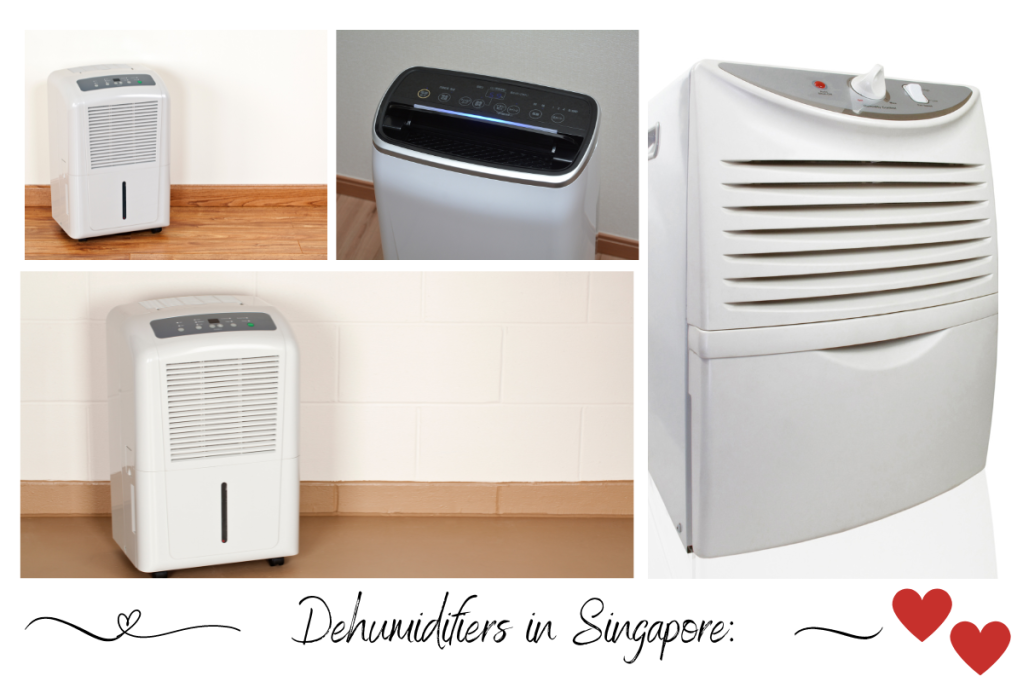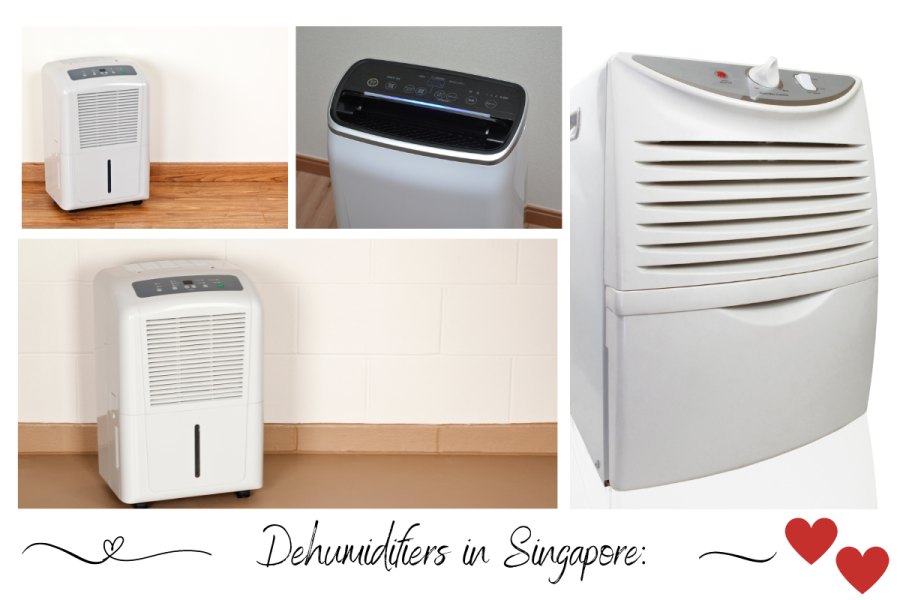
Understanding the Importance of Dehumidifiers in Singapore and How to Select the Best One for Your Home
Introduction
Singapore’s notoriety for its sultry and muggy weather poses discomfort for multitudes. Excessive moisture levels can lead to an array of predicaments, such as the propagation of mold, the emergence of musty odors, and the degradation of furniture and electronics. Consequently, dehumidifiers are a practical solution to alleviate these woes, as they regulate humidity levels in your abode and foster a comfortable living environment. This comprehensive guide illuminates the significance of dehumidifiers in Singapore and furnishes tips on selecting the most suitable option for your requirements.
Why Avail a Dehumidifier in Singapore? Singapore is situated within the tropical climate belt, signifying that humidity levels remain elevated all year round. As a result, it can induce a slew of complications, including:
- The growth of mold and mildew: Elevated humidity levels provide the optimal environment for mold and mildew proliferation, which can trigger health complications and inflict damage to your dwelling.
- The manifestation of musty odors: Humidity can also beget musty odors, which can prove repugnant and arduous to eliminate.
- The depreciation of furniture and electronics: Excessive humidity levels can wreak havoc on your furniture and electronics by permeating the materials and causing deterioration.
- Health complications: High moisture levels can precipitate respiratory issues, such as asthma and allergies, as well as skin irritations and other health problems.
Dehumidifiers alleviate these quandaries by eliminating superfluous moisture from the atmosphere and sustaining a healthy humidity level within your home.
Factors to Ponder When Choosing a Dehumidifier When procuring a dehumidifier, several factors necessitate contemplation, including:
- Magnitude: The size of the dehumidifier should be commensurate with the dimensions of the room you seek to dehumidify. A larger room mandates a larger dehumidifier to effectively reduce moisture levels.
- Capacity: The capacity of the dehumidifier denotes the amount of moisture it can extract from the atmosphere in a 24-hour period, measured in pints, and should correspond with the humidity level in your home.
- Energy efficiency: Dehumidifiers consume substantial amounts of energy, hence opting for an energy-efficient model is crucial to curb electricity expenses.
- Decibel level: Some dehumidifiers can emit disruptive noise, which could prove bothersome if deployed in a bedroom or other tranquil space.
- Maintenance: Dehumidifiers necessitate periodic maintenance, such as filter cleaning and water tank draining, hence acquiring a model that is facile to maintain is imperative.
Types of Dehumidifiers Multiple categories of dehumidifiers are available, each exhibiting unique benefits and drawbacks:
- Refrigerant dehumidifiers: The most prevalent variant employs a compressor and refrigerant to eliminate moisture from the air, proving most efficient in warmer temperatures.
- Desiccant dehumidifiers: These employ a desiccant substance, like silica gel, to absorb moisture from the air and are optimal for cooler temperatures and low humidity levels.
- Whole-house dehumidifiers: These are incorporated into your home’s HVAC system and regulate the moisture levels throughout the domicile. They are costlier than portable dehumidifiers but more efficient in governing humidity levels.
- Mini dehumidifiers: Small and portable, these are designed for deployment in confined spaces.
Certainly, here’s some additional information about dehumidifiers in Singapore:
Indeed, here are some additional tidbits of information regarding dehumidifiers in the city-state of Singapore:
- Salubrious Benefits: Arguably the most salient boon of dehumidifiers is their potential to enhance one’s health. Elevated levels of humidity can breed the growth of mold and mildew, precipitating respiratory ailments and allergic reactions. By purging excess moisture from the atmosphere, a dehumidifier can prevent such pathogenic growths, thereby promoting the well-being of you and your loved ones.
- Energy Efficiency: Furthermore, dehumidifiers can curtail your energy consumption and reduce your utility expenses. When the air in your domicile is excessively humid, your air conditioning system must exert more effort to chill the air. However, by utilizing a dehumidifier to extract superfluous moisture, your air conditioning unit can function more efficiently and decrease its energy usage.
- Property Preservation: Moreover, superfluous moisture in the air can inflict damage upon your residence and possessions. High humidity levels can result in warping of wooden structures, peeling of paint, and malfunctioning of electronic gadgets. A dehumidifier can mitigate such issues by expunging excess moisture from the air and thereby safeguarding your domicile and belongings.
- Varieties of Dehumidifiers: Multiple categories of dehumidifiers exist in Singapore. The most prevalent models include refrigerant, desiccant, and thermoelectric dehumidifiers. Refrigerant dehumidifiers deploy compressors and refrigerants to eliminate moisture from the air. These are the most conventional type of dehumidifiers and are efficacious in extracting substantial quantities of moisture. Desiccant dehumidifiers rely on desiccant materials to soak up moisture from the air. They are often utilized in colder environments where refrigerant dehumidifiers may not operate as effectively. Thermoelectric dehumidifiers harness electric currents to create a temperature disparity, thereby condensing moisture and collecting it in a reservoir.
- Selecting the Appropriate Dehumidifier: When determining which dehumidifier to purchase, several considerations are pivotal. The size of the dehumidifier is significant and should be based on the dimensions of the room you intend to dehumidify. Other factors to contemplate include the type of dehumidifier, the noise level, and the energy efficiency rating.
- Maintenance and Upkeep: To ensure that your dehumidifier is functioning optimally, it is imperative to perform regular maintenance and upkeep. This entails cleaning the filter, draining the water tank, and inspecting the appliance for any wear and tear or physical damage.
- Where to Procure Dehumidifiers in Singapore: Dehumidifiers are widely available throughout Singapore and can be found at most electronics stores, home appliance retailers, and online vendors. Prominent brands of dehumidifiers in Singapore encompass Novita, Philips, and Mitsubishi Electric.
- Dehumidifier Rental Services: For those individuals who require a dehumidifier for a limited duration, rental services are on offer in Singapore. These services furnish the option of renting a dehumidifier for a specified interval and returning it once it is no longer needed.
Certainly! Here are some additional things to consider when it comes to dehumidifiers:
- Different types of dehumidifiers: There are two main types of dehumidifiers: refrigerant-based and desiccant-based. Refrigerant-based dehumidifiers work by cooling the air to condense moisture, while desiccant-based dehumidifiers use materials like silica gel to absorb moisture from the air. Each type has its own advantages and disadvantages, and the best one for you will depend on your specific needs and situation.
- Size and capacity: When choosing a dehumidifier, it’s important to consider its size and capacity. A dehumidifier’s capacity is measured in pints of moisture removed per day, and you’ll want to choose one that can handle the amount of moisture in your space. Additionally, you’ll want to choose a dehumidifier that is appropriately sized for your space to ensure that it works efficiently and effectively.
- Energy efficiency: Dehumidifiers can be energy-intensive, so it’s important to choose one that is energy efficient to save on your electricity bill. Look for dehumidifiers with an Energy Star rating, which indicates that they meet strict energy efficiency guidelines.
- Noise level: Some dehumidifiers can be quite loud, which can be a problem if you plan to use them in a living space. Look for dehumidifiers with low noise levels, or ones that have a “quiet mode” option.
- Maintenance: Like any appliance, dehumidifiers require regular maintenance to keep them working effectively. Be sure to clean your dehumidifier’s filter regularly, and empty the water tank as needed. Some dehumidifiers also come with features like automatic shut-off when the tank is full, which can make maintenance easier.
- Portability: If you plan to move your dehumidifier from room to room, or if you need to store it during the off-season, look for one that is lightweight and easy to move. Some dehumidifiers also come with casters or handles to make them easier to move around.
- Additional features: Some dehumidifiers come with additional features, such as built-in humidistats that allow you to set and monitor the desired humidity level, or automatic defrost functions that prevent the unit from freezing up in cold temperatures. Consider whether any of these features are important to you when choosing a dehumidifier.
- Health benefits: Dehumidifiers can also provide health benefits by reducing the growth of mold and mildew, which can trigger allergies and respiratory problems. They can also reduce the presence of dust mites, which can also cause allergy symptoms. If you or someone in your household suffers from allergies or respiratory problems, a dehumidifier may be particularly beneficial.
- Climate considerations: The climate you live in can also affect your dehumidifier needs. In hot, humid climates, you may need a more powerful dehumidifier to handle the higher levels of moisture in the air. In colder climates, you may need a dehumidifier with a defrost function to prevent the unit from freezing up.
- Cost considerations: Finally, it’s important to consider the cost of a dehumidifier when choosing one for your home. While there are many affordable options on the market, more advanced models with additional features may come with a higher price tag. Consider your budget when choosing a dehumidifier, and look for one that offers the features you need at a price you can afford.
Conclusion
In conclusion, dehumidifiers are essential devices that help regulate the humidity levels in indoor spaces. With Singapore’s high humidity levels, investing in a dehumidifier is crucial to maintaining a comfortable and healthy living environment. Dehumidifiers are available in various sizes, types, and features to suit different needs and budgets. It is essential to consider factors such as room size, desired features, and maintenance requirements when choosing a dehumidifier. Regular maintenance and proper usage will help ensure optimal performance and longevity of the device. With the information provided in this article, we hope you can make an informed decision on selecting the best dehumidifier for your home or office in Singapore.
